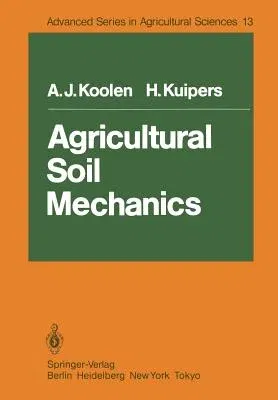A J Koolen
(Author)Agricultural Soil Mechanics (Softcover Reprint of the Original 1st 1983)Paperback - Softcover Reprint of the Original 1st 1983, 6 December 2011

Qty
1
Turbo
Ships in 2 - 3 days
In Stock
Free Delivery
Cash on Delivery
15 Days
Free Returns
Secure Checkout
Part of Series
Advanced Agricultural Sciences
Part of Series
Advanced Series in Agricultural Sciences
Print Length
244 pages
Language
English
Publisher
Springer
Date Published
6 Dec 2011
ISBN-10
3642690122
ISBN-13
9783642690129
Description
Product Details
Authors:
Book Edition:
Softcover Reprint of the Original 1st 1983
Book Format:
Paperback
Country of Origin:
NL
Date Published:
6 December 2011
Dimensions:
24.41 x
16.99 x
1.4 cm
ISBN-10:
3642690122
ISBN-13:
9783642690129
Language:
English
Location:
Berlin, Heidelberg
Pages:
244
Publisher:
Weight:
421.84 gm

